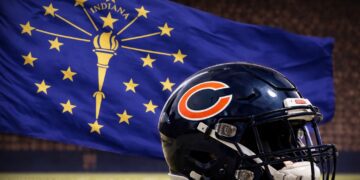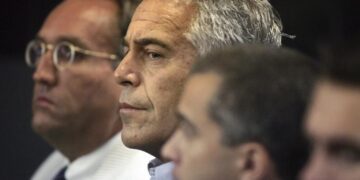By Hank Beckman -
Coming of age in the early years of Rock and Roll, John Lennon spoke for his entire English generation when he reportedly said, “before Elvis, there was nothing.”
There were obviously other musical influences that led to the birth of Rock; antecedents, if you will. But for Lennon’s contemporaries, Elvis was the one that got a whole class of English youth rocking and rolling.
A similar media earthquake—and Elvis was an earthquake—hit at the end of the Reagan administration. It registered the equivalent of a 9.0 on the Richter Scale and changed our political discourse, shook the mainstream media’s dominance of the national conversation and had especially profound consequences for conservatives.
Simply put, before Rush Limbaugh, there was nothing.
There wasn’t, and still isn’t, a conservative outlet in the modern era that can be said to rival “El Rushbo”, as he was known to his devotees faithfully listening weekday afternoons on his Excellence in Broadcasting (EIB) network.
Oh, the Limbaugh Revolution had its own antecedents like the National Review, The American Spectator and Human Events. Paul Harvey was on the radio every morning and William F. Buckley, Jr. jousted with liberals on the “Firing Line.”
But those periodicals didn’t offer immediate comment on the issues of the day. Harvey’s show, though definitely leaning right, was not an explicitly political show and while Buckley’s show was political, neither it or the few columnists that wrote from the right of center came close to having the influence of the mainstream media and its farm system in academia.
The 1987 repeal of the Fairness Doctrine meant that programming on publicly-issued broadcast licenses was no longer required to provide an opposing viewpoint for every political opinion. Rush, with “talent on loan from God,” and “one half of his brain tied behind his back,” took advantage of the new rules like no one else.
Rush single-handedly invented conservative talk radio, spawning a host of imitators—none his equal—and essentially saving AM radio from the ash heap of history.
I was working as a contract courier when his show, originally broadcast from Sacramento, California, was first syndicated nationally from New York. His effect on political discourse was immediate, dramatic and hasn’t been equaled to this day. More than any other political journalist, Rush changed the national conversation from one that reflected a insular, coastal elite deciding what was worthy of our attention to one where all of us were invited to chime in.
For a whole generation of Baby Boomers, many influenced by the chaos of the sixties, educated at liberal universities and out in the real world that was testing our beliefs on a daily basis, Rush, more than any other journalist or member of the chattering class, was a credible voice with a huge megaphone assuring us we weren’t crazy to suspect that the narrative we were we were fed by the dominant liberal media didn’t quite mesh with our adult experiences.
As Boomers eased into middle age, many of us slowly—and often silently, depending on our professional situation—were beginning to realize that the story we were told about America being a terrible, irredeemably racist country without any admirable qualities, a country whose signature accomplishments were limited to polluting the waters and killing all the Indians, was a misleading one.
Although there were obviously mistakes and episodes in our national story that we’d sooner not dwell upon, many of the people in my generation were a little uneasy with the constant barrage of negativity we experienced through the mainstream media.
Rush’s explosion on the national consciousness coming at the end of the Reagan era couldn’t have been more timely. We’d just been through eight years of a generally hostile media approach to the Reagan administration that left many wondering if the mainstream media was living in the same country as the rest of us.
Those blessed with even a slight sense of skepticism thought it odd that the media insisted Reagan’s America was suddenly overrun with an entire new class of people: the homeless. Later studies showed Reagan’s policies had nothing to do with the phenomena and that the problem was exaggerated to begin with.
Could it really be that all the dramatic economic growth during the Gipper’s time was limited to hamburger-flipping jobs, as we were assured by media?
Wasn’t it a little strange that Hollywood was making movies about a pending nuclear holocaust when Reagan deployed Pershing II missiles to Western Europe, but most on the Left were conspicuously silent when the Soviets deployed their SS-20 missiles in the late seventies?
And why, when we’d been assured that our efforts in Central America were benefiting evil capitalists and the murderous Contras, did the Nicaraguan people soundly reject the Sandinistas when they had their chance to weigh in on their performance? A mystery, indeed.
Rush’s singular contribution to the times in which he lived was that he brought half of America—the half so many journalists ignore—into the conversation. People like myself in my car 12 hours daily, truck drivers, and cabbies were exposed to a viewpoint they never got from mainstream media. People on construction sites or restaurant kitchens told me they would make sure the radio was on at 11 a.m. on the job site just to listen to Rush’s latest pearls of wisdom.
No longer did a working stiff have to spend off hours at the library pouring over print publications to be on top of the issues of the day or get a different perspective than that of your local news anchor. Now we had Rush assuring us that we weren’t imagining media bias after all; the homeless really weren’t an epidemic ushered in by Reagan and his heartless corporate/yuppie followers.
Key to getting his message across to his listeners was something that no other conservative possessed—a sense of humor. Prominent conservatives throughout the 1980s contributed mightily to the cause and were obviously influential, but none of them could approach Rush’s ability to tickle Middle America’s funny bone.
Buckley, columnist George Will and R. Emmett Tyrrell’s American Spectator were certainly compelling and erudite, capable of effective satire and wit. But they were the voice of an educated few pushing back against the dominant liberal elite with sarcasm and invective of their own.
None of them could pull off Rush’s “homeless updates,” where he skewered the media’s obsession with people that had formerly been known as bums and winos. There was no other media personality willing to rail so effectively against militant feminists, going as far as to categorize them as “feminazis” while playing hilarious clips of them yelling “we’re fierce, were feminist, we’re in your face!” Rush might not have coined the term “environmental wackos,” but he certainly was the one that made it a part of the nation’s political vocabulary.
His parodies of public figures like Jesse Jackson, Bill Clinton and Al Sharpton were priceless radio sketches of people we suspected of being political con artists and grifters but were never portrayed as such by most media.
When Rush crossed the line into being mean-spirited, it was a rare slip. As he was fond of saying, a person couldn’t understand his program by listening once or twice; one had to be a regular listener to understand his outlook on life and know that it was anything but hate-filled.
I challenge anyone to do a three-hour unscripted radio program for three decades and not produce a few moments they’d regret; it isn’t possible. If any journalist or pundit now criticizing Rush’s low moments wants to be held to the standard of having their life’s work judged by such a small percentage its output, they are welcome to the enhanced scrutiny. But they’d regret it.
RIP, Rush; you did good.







